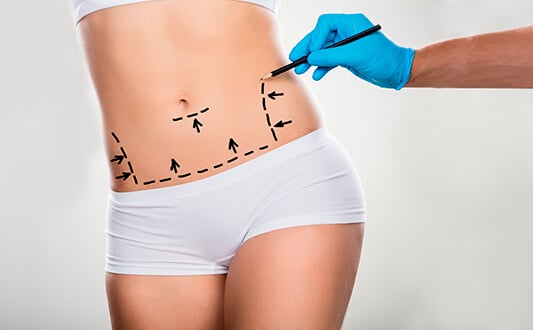The number of people with obesity has doubled over the past 30 years. The prevalence of this pathology is continuing to increase. In some countries, such as the United States of America, Saudi Arabia, and Turkey, every third person suffers from obesity. Fortunately, modern medicine has successfully solved this problem. Even the most severe cases of obesity can be treated. You can go abroad to receive high-quality medical services at a reasonable price.
Content
- How dangerous is obesity?
- How is severe obesity treated?
- In which countries can I undergo obesity treatment?
- Organization of a trip abroad with Booking Health
How dangerous is obesity?
Obesity is not just a cosmetic problem. An increase in body mass can lead to the development of diabetes mellitus, arthrosis, gallstone disease, high blood pressure, atherosclerosis, heart disease, or a stroke. Obesity significantly reduces a person’s quality of life and its duration.
The reduced availability of physical labor, improvement in the welfare of the population, and availability of food and drinks, have all led to an increase in obesity rates, especially in countries with high economic development. The problem of obesity has become a national problem in North America, Europe, and Arab states. Obesity significantly increases the cost of medical care, and increases the number of people with a disability.
Not everyone can lose weight on their own. Short-term diets or visits to a fitness center are ineffective. If a person wants to lose weight and then keep it at the achieved level, they need to completely change their lifestyle and eating habits, but there is another option, namely bariatric surgery. This is usually used if the obesity is severe, cannot be treated by other methods, or is associated with other diseases.
How is severe obesity treated?
The severity of obesity is determined by body mass index. A BMI between 25 and 30 kg/m2 is considered overweight. Grade 1 obesity starts at 30 kg/m2, grade 2 starts at a BMI of 35 kg/m2, and a BMI of 40 kg/m2 indicates grade 3 obesity.
The higher the weight, the greater the negative impact on health. Surgical treatment is indicated for grade 3 obesity, or grade 2 if obesity-related diseases have developed. Let’s look at the main techniques which are used abroad for rapid weight loss.
Gastric balloon
This is used to treat mild obesity. A Gastric balloon requires the patient to implement a weight loss diet, but does make it much easier.
The essence of the procedure is that a balloon is inserted into the stomach. It is inflated, and therefore occupies a large part of the stomach. As a result, a person cannot eat much food and the feeling of hunger disappears quickly.
The balloon does not stay in the stomach permanently, 4-6 months after the procedure it is pulled out. The patient's task is to lose as many extra pounds as possible during this time. A person has to limit their calorie intake. After the removal of the balloon, they will need to change their lifestyle if they do not want to regain the excess weight.
The procedure has obvious advantages – there is no need to perform an operation, no risk of serious complications, and a low treatment cost. However, it has disadvantages such as, its possible ineffectiveness in severe obesity, and that it requires self-control.
Adjustable gastric banding
During laparoscopic surgery, a ring is put on the stomach. This separates the upper part of the stomach, the so-called "gastric pouch", with a volume of 15 ml.
When eating, food enters the upper part of the stomach first, stretches its walls and activates the receptors which are responsible for satiety. A person will then reduce their servings and gradually lose weight.
The benefits of this surgery:
- low invasiveness;
- complete reversibility – the ring can be removed;
- efficiency of the operation is about 85%.
Although this operation is the least traumatic method of bariatric surgery, it is inferior to the others in effectiveness. The problem is that after bandaging, the need to have self-control is still essential. A person has to refuse high-calorie foods. About 15% of patients do not lose weight after this operation.
Sleeve gastroplasty
A "sleeve" is made from the stomach – a doctor removes part of it, performing a longitudinal resection. The result is a "tube" with a diameter of 1-3 cm, with a volume of about 100 ml. Weight loss occurs due to the following mechanisms:
- reduction of the stomach size accelerates satiety, limits too large portions;
- part of the stomach that produces the hormone of hunger – ghrelin, is removed;
- secretory activity of the stomach decreases, which leads to lower digestive efficiency.
The risk of complications in a good clinic does not exceed 1%. The following 2 years after surgery, patients lose an average of 60% of excess weight. Сonscious diet control is not required after this operation, since a person's taste preferences and eating behavior change.
Gastric bypass surgery
This is one of the most effective operations. It can be used for the treatment of obesity in patients with a body mass index of more than 45 kg/m2.
The essence of the operation is that a doctor separates the upper part of the stomach and forms an anastomosis with the small intestine. The following results are achieved:
- stomach is reduced in size;
- food bolus passes by the duodenum;
- food does not enter the upper part of the small intestine.
Weight loss is achieved by two mechanisms at once: early satiety and impaired digestion. Many nutrients are simply not absorbed.
In modern clinics, surgery is performed using a laparoscopic method. Doctors occasionally have to switch to open surgical access.
This surgery ensures the following benefits:
- loss of 75% of excess weight during the first year after surgery;
- improvement of blood lipid profile and reduction of cardiovascular risks;
- normalization of carbohydrate metabolism – 2 out of 3 patients with diabetes mellitus stop their oral hypoglycemic drug intake.
Such therapy has a number of disadvantages. To avoid hypovitaminosis and anemia, a person has to take vitamin-mineral complexes for life. In 4% of patients operated on, ulcers develop in the upper gastrointestinal tract. Protein deficiency develops in some patients.
In general, a gastric bypass has more advantages than disadvantages. This operation solves the problem of obesity, increases quality of life and life expectancy, and prevents many complications, including fatal ones. Therefore, it remains the "gold standard" for the treatment of obesity in North America.
Biliopancreatic diversion
This is the most effective surgery for the treatment of obesity. At the same time, it is the most complex one. The stomach is reduced by up to 200 ml. The small intestine is divided into alimentary (200-250 cm long), biliopancreatic (100-200 cm long), and general (50-100 cm long) loops. The following aims are reached as a result of the operation:
- reduced stomach volume;
- food bolus passes by part of the gastrointestinal tract, where the food is usually digested;
- bile with pancreatic juice does not get into the food, so the food is absorbed poorly.
This operation is relatively rare. After it, a deficiency of fat-soluble vitamins often develops, and it is not always possible to compensate for it, even with the help of drugs. A tropological insufficiency is developed in some patients, and they need enzymatic agents. Some patients suffer from dyspepsia, they have to take antisecretory drugs.
Liposuction
Liposuction is not a treatment for obesity. It only improves the appearance of a person who is overweight. At the same time, cardiovascular, metabolic, and other risks are not reduced.
During liposuction, fat is removed from the anterior abdominal wall in one way or another, and if necessary, from other areas. Fat is usually emulsified with a laser, ultrasound, vibration, special solutions, and then suctioned with an aspirator. The procedure is less traumatic, it is performed under local anesthesia.
In which countries can I undergo obesity treatment?
The choice of country for this procedure depends on a patient's requirements for comfort, financial well-being, and geographical location. Most people want to undergo their treatment in a nearby country, since this means they will spend less time and money on the road.
The following factors influence the decision:
- level of medicine;
- geographical location – how far the country is from your country;
- cost of medical services;
- level of services;
- opportunity to combine treatment with recreation or excursions.
Price is the most important criterion in the selection of the country and clinic. In most cases, patients from developed countries go abroad to save money. They can receive services of similar quality in their homeland, but bariatric surgery is often too expensive. Below, we present a table with the prices from two countries which are popular among medical tourists. Costs for different operations and procedures are indicated.
| Procedure | Price in Turkey | Price in Germany |
|---|---|---|
| Gastric balloon | 4,390 | 5,650 |
| Gastric banding | 13,300 | 15,360 |
| Sleeve gastroplasty | 13,190 | 15,140 |
| Gastric bypass surgery | 13,240 | 16,150 |
| Liposuction | 5,960 | 9,460 |
As you can see, Turkey provides the lowest price for treatment. This country has good clinics with talented surgeons. You can undergo an effective, minimally traumatic, and safe operation here. This country offers a high level of comfort, services, and care after surgery.
The level of medicine is higher in German clinics. In addition, prices in Germany are not the highest in the world. For example, they are much higher in the United States or Japan, so residents of these countries often visit German clinics.
Organization of a trip abroad with Booking Health
If you want to go abroad to the best specialized clinics in the world for the treatment of obesity, you can use the service of Booking Health. You can get the information about the main medical programs on our portal, compare prices, and book a treatment at an affordable price. The specialists at Booking Health will arrange your trip abroad for you. We provide the following services and advantages:
- Selection of a clinic which specializes in the treatment of obesity, performs minimally invasive procedures and operations, and achieves the best results with minimal health risks
- Reduced waiting period for a treatment
- Reduced costs of medical services due to avoiding additional coefficients for foreign patients
- Direct communication with the doctor
- Elaboration of a treatment program without repeating previously performed diagnostic tests
- Buying and forwarding medicines
- Communication with the clinic after the treatment program is completed
- Organization of additional diagnostics, treatment, or rehabilitation
The specialists at Booking Health provide top-class services. We will book a hotel and airline tickets for you, meet you at the airport, and take you to the clinic by car.
Choose treatment abroad and you will for sure get the best results!
Authors:
The article was edited by medical experts, board certified doctors Dr. Vadim Zhiliuk, Dr. Nadezhda Ivanisova. For the treatment of the conditions referred to in the article, you must consult a doctor; the information in the article is not intended for self-medication!
Sources:
Read:
Why Booking Health - questions and answers
How to make right decision when choosing the clinic and specialist
7 reasons to trust to the rating of clinics on the Booking Health portal
Don't know where to start?
Contact Booking Health







